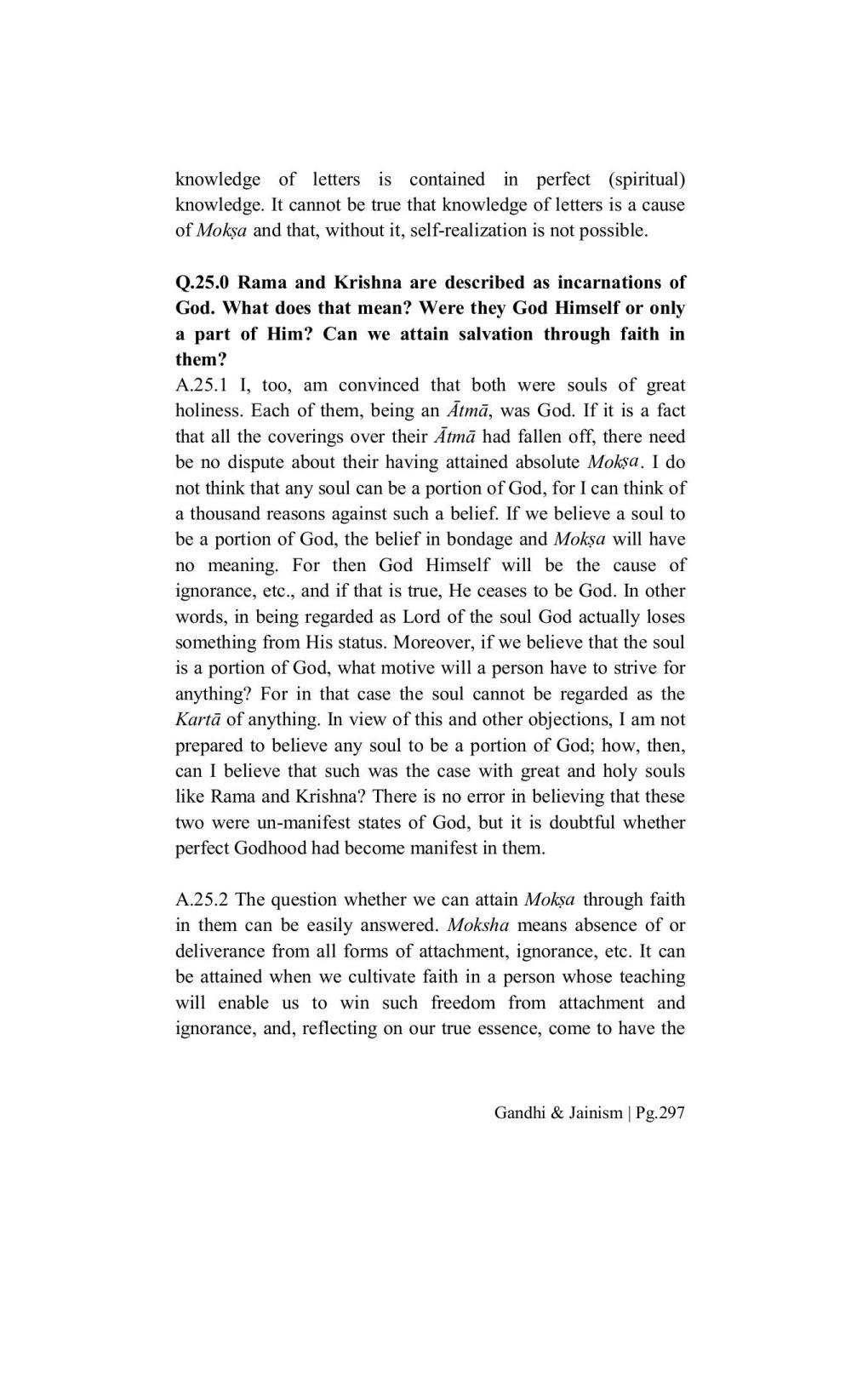________________
knowledge of letters is contained in perfect (spiritual) knowledge. It cannot be true that knowledge of letters is a cause of Moksa and that, without it, self-realization is not possible.
Q.25.0 Rama and Krishna are described as incarnations of God. What does that mean? Were they God Himself or only a part of Him? Can we attain salvation through faith in them? A.25.1 I, too, am convinced that both were souls of great holiness. Each of them, being an Ātmā, was God. If it is a fact that all the coverings over their Atmā had fallen off, there need be no dispute about their having attained absolute Mokşa. I do not think that any soul can be a portion of God, for I can think of a thousand reasons against such a belief. If we believe a soul to be a portion of God, the belief in bondage and Mokșa will have no meaning. For then God Himself will be the cause of ignorance, etc., and if that is true, He ceases to be God. In other words, in being regarded as Lord of the soul God actually loses something from His status. Moreover, if we believe that the soul is a portion of God, what motive will a person have to strive for anything? For in that case the soul cannot be regarded as the Kartā of anything. In view of this and other objections, I am not prepared to believe any soul to be a portion of God; how, then, can I believe that such was the case with great and holy souls like Rama and Krishna? There is no error in believing that these two were un-manifest states of God, but it is doubtful whether perfect Godhood had become manifest in them.
A.25.2 The question whether we can attain Mokşa through faith in them can be easily answered. Moksha means absence of or deliverance from all forms of attachment, ignorance, etc. It can be attained when we cultivate faith in a person whose teaching will enable us to win such freedom from attachment and ignorance, and, reflecting on our true essence, come to have the
Gandhi & Jainism Pg. 297




